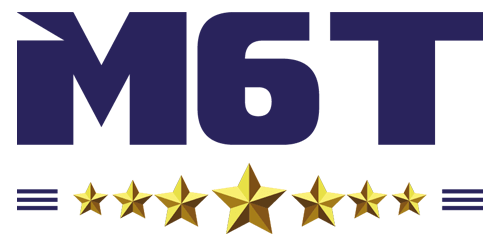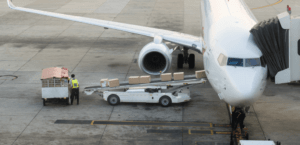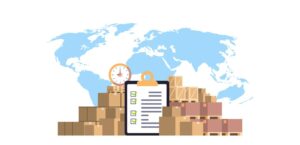Meeting compliance in the road freight transport industry can be a tough job, but one that is necessary for ensuring the safety and reliability of all vehicle fleets. Most countries have vehicles fleets that are comprised of an owner and a few additional drivers and cars. Having a smaller fleet means that meeting compliance requirements can be easier to follow and secure.
The freight transportation environment of South Africa is, fundamentally, different from most of the globe. We’ve got much larger scale vehicle fleets that have become the norm. These fleets can range from ten or twenty vehicles to hundreds of vehicles comprising a fleet. By having bigger fleet sizes, South African fleet managers and owners are required to navigate wider and more complex compliance and road safety steps to meet the standard requirements.
Multiple internal systems, outsourced services and digital spreadsheets are required to maintain compliance throughout your fleet. It’s up to owners and managers track their fleet’s data, from tyre and fuel management to revenue and GPS tracking, fleet managers must be able to monitor the performance, health and safety of every vehicle.
Here are 10 frequently asked questions to help you ensure that your fleet is fully compliant:
- What are the most significant legislative requirements in the freight industry?
The National Road Traffic Act, 1996 and all of its subsequent Amendments, deal with a range of vehicle and driver compliance and road safety requirements. The act includes the: registration and licensing of vehicles, licensing of drivers and driver permits (PrDP), fitness of vehicles and operator fitness. Included in the act, is the protocol for transportation of dangerous goods or hazardous cargo, which usually requires a SQAS and third-party assessments to ensure their safe distribution.The AARTO Amendment Bill, 2015, is responsible for the levying of traffic penalties, from fines and overloading to the impounding of vehicles, as well as imposing a demerit system. The Customs Control Act 31, 2014 considers the customs clearance process and implementation of various levies, taxes and regulations for the distribution of goods and cargo.The National Bargaining Council for the Road Freight and Logistics Industry (NBCRFLI) is governed by the Labour Relations Act of 1995. It’s intended to support the employer and employee organisations, councils, trade unions and other negotiating platforms; helping protect the labour rights and wellbeing of all transportation workers operators.In addition, there are municipal bylaws, tax legislation (VAT, PAYE, etc.) imposed by SARS and BBEEE compliance, which are all a critical part of your fleet company’s operations and road compliance. - Do large and small fleet companies have the same compliance requirements?
Yes, all fleet companies will have to meet the same compliance standards as any other size fleet. However, as mentioned before, the capability of a large company to keep up with all road, vehicle and driver compliance requirements can become more complex due to the number of vehicles. - Are there significant costs involved in meeting compliance standards for freight operators?
Yes, as with any industry, by keeping governmental and legislative bodies happy, fleet operators will incur a cost. Training, evaluation, vehicle check-ups, taxes, levies and other requirements can feel like a burden on your time and resources. However, the overall cost of non-compliance outweighs these costs in wasted money, unnecessary penalties, insurance issues and disputed road incidents. - What are the major challenges to a fleet manager in meeting their compliance obligations?
Time constraints and fleetwide compliance are the most difficult for a fleet manager. A transport operator will need visible data and accessible information about every vehicle in their fleet. Every vehicle, driver and piece of cargo must meet the same compliance obligations, including: roadworthiness, driver fitness, road rules and safety, vehicle on and offloading and many others. - Where is the data being collected from for compliance purposes?
The short answer is: everywhere. Collecting data, monitoring vehicle and driver performance, GPS tracking, communication systems and digital management schemes are critical to effective fleet management. The real-time updates and fleetwide coordination allow managers to solve issues as they arise, pull data they need to for compliance and build a more effective supply chain, where data is collected and analysed. From workshops and permits to customers and human resources, every step in the supply chain must have data and financial information for compliance purposes. - Which bodies should fleet companies report to?
- Department of Labour
- Employment Equity Report
- SARS (VAT, PAYE, UIF, SDL)
- Workman’s Compensation and appropriate Trade Unions
- National Bargaining Council for the Road Freight and Logistics Industry (NBCRFLI)
- Local Municipalities
- Can technology help to reduce the burdens of compliance?
The transportation industry has made use of technological innovations that have revolutionised the field, time and time again. These technological feats range from vehicle fleet telematics and real-time GPS tracking to cloud-based management systems. These technologies allow fleet operators to access actionable insights and usable data that can refine operations and help managers meet compliance requirements. The burdens of time constraints, financial management issues, slow administrative processes and insufficient data, can all be reduced using new technology. - Do software solutions require additional training of employees?
Not necessarily. With adequate support and the right skills development, fleet managers can introduce new – and better – digital and software solutions with little fuss. Software solutions are designed to be user-friendly and easy-to-learn, while making the drivers and managers daily operations smoother and easier. - Is compliance cost saving?
Yes. As mentioned, non-compliance is an expensive process, which includes penalties like fines, legal disputes, insurance issues and possibly shutting businesses down until compliance requirements are met. - What are the major benefits of being compliant?
Compliance standards and road rules exist for a reason. Each one of them are intended to make the roads we travel in South Africa better and safer. Being compliant can help drive inhouse efficiency too. Fully-compliant vehicle fleets are known to be more reliable, secure and efficient, while continuing to drive new and better business.
M6T is one of South Africa’s most reliable and capable road freight transportation services. If you are looking for end-to-end road freight services that offer real-time monitoring and consistent delivery, contact us at our Johannesburg or Durban branch today.



